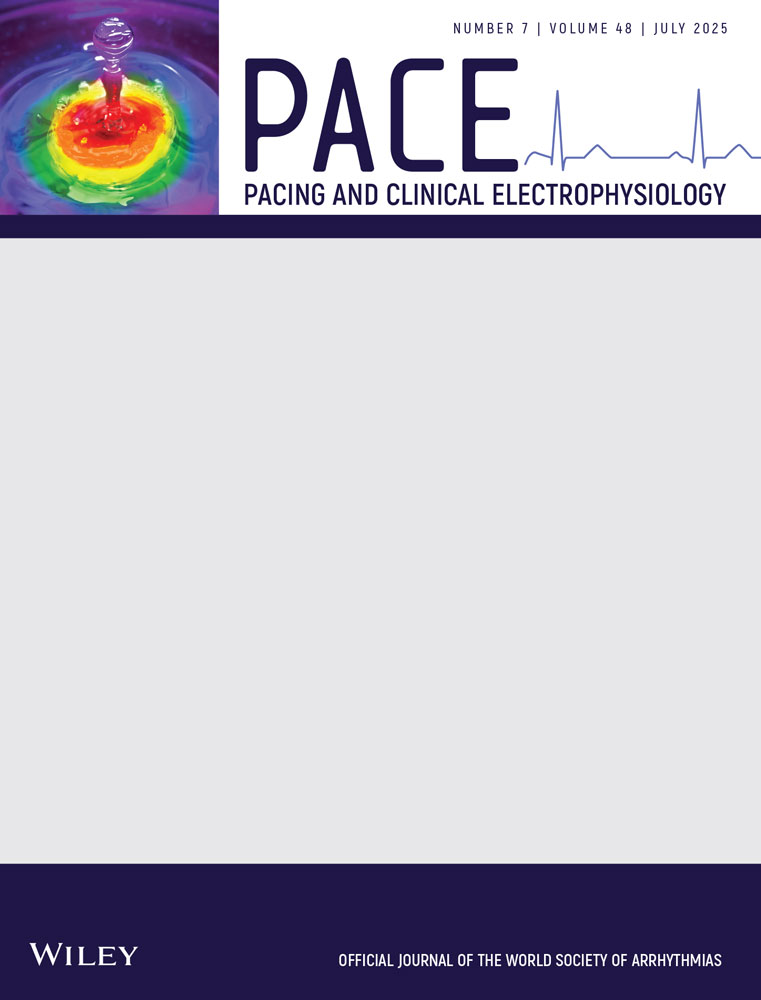Effect of Transvenous Atrioventricular Nodal Ablation on the Function of Implanted Pacemakers
Abstract
We report on seven patients with implanted pacemakers who underwent transvenous ablation of the atrioventricular junction using direct current shocks of 200 to 350 joules. Pacemaker impulse duration and rate were unaffected, but one rate responsive (TX) pacemaker was reprogrammed by a 300-joule shock. Transient increases in stimulation threshold did occur in two patients, and exit block for 2–15 seconds developed on four occasions. Chronic stimulation thresholds were unaffected. We conclude that it is preferable to carry out ablation before pacemaker implantation, but it is possible to perform transvenous ablation of the atrioventricular junction without damage to an implanted pacemaker; however, a transient rise in stimulation threshold or even exit block may occur, and pacemaker function should be carefully assessed after the procedure.




